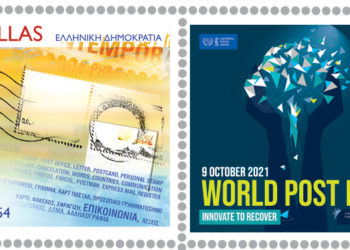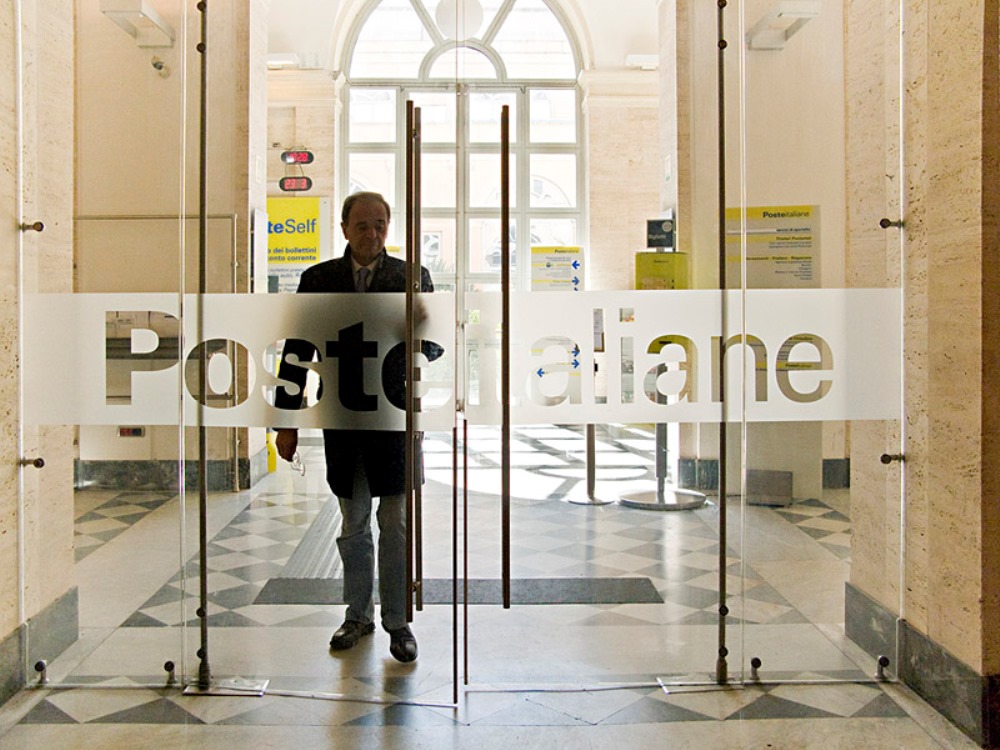The Universal Postal Union, one of the world’s oldest international organizations, is turning 150 years old. Reason enough for Germany to honor it with a stamp.
On October 9, 1874, 22 countries came together to found the ‘Universal Postal Union’ in Bern, Switzerland. The new organization’s aim was to regulate cooperation between postal administrations and, in particular, the flow of cross-border mail.
Today, the ‘Union Postale Universelle’ (UPU) comprises over 190 member states and has been a United Nations Specialized Agency since 1947.
Based in Bern, the UPU has French as its official language. The new 95-cent stamp can, among other things, be used to send a postcard abroad. It will be available from October 10 in selected postal retail outlets in Germany only. The stamp is officially issued by the German Federal Ministry of Finance.
Thomas Baldry, SVP International Mail at Deutsche Post and an expert on the Universal Postal Union, says: “The Universal Postal Union is key to the flow of international mail and provides the basis for regulated international postal services. Thanks to this venerable organization, we can simply drop a letter with a German stamp into a letterbox and rest assured it will be with the addressee on the other side of the world a few days later. Without the UPU, sending letters around the world would be much more complicated and expensive.”
The Universal Postal Union: from its birth to the present day
The Universal Postal Union was founded at the suggestion of the GermanPostmaster General Heinrich Stephan (known as Heinrich von Stephan since 1885). Initially, its primary focus was to be on simplifying the flow of international mail, since at the time this was very complicated and predominantly regulated by bilateral treaties. In 1868, Stephan wrote a memorandum proposing the establishment of an association to regulate cooperation between different international postal services. In the end, 20 countries ratified the Universal Postal Convention, which came into force on July 1, 1875. More treaties were signed in the following years that regulated the dispatch of insured letters, parcels and newspapers or the use of international reply coupons, for example.
Since 1969, World Post Day has been held annually on October 9, the anniversary of the Universal Postal Union’s founding. To mark the occasion, numerous stamps have been issued over the past few decades that showcase and honor the UPU, its founder or its objectives. A Universal Postal Congress is usually held every four years. At these congresses, decisions regarding proposed improvements to the global network and the standards that govern it are made. Discussions also take place on the work of the organization going forward. The last World Postal Congress to be held in Germany took place in Hamburg in 1984.
Germany’s role in the Universal Postal Union
As a founding member, Germany has always played an active role in the Universal Postal Union and its committees. Supported by the German Federal Network Agency, the German Federal Ministry of Economics and Climate Protection represents Germany at the UPU. Appointed by the German government, Deutsche Post AG is a ‘Designated Operator’. In this capacity, Deutsche Post AG participates in committees and is responsible for distributing mail from abroad throughout Germany’s postal territory in accordance with internationally agreed principles.
Bonn is home to one of the world’s largest stamp collections
Few people realize that Bonn is home to one of the largest and most valuable stamp collections in the world. Ranging from the world’s first stamp to contemporary stamps, old letters and original designs to completely bizarre postage stamps and misprints, the basement archive of the ‘Museum Foundation for Post and Telecommunications’ contains an almost complete collection of the world’s stamps. Around ten million items are stored in the hermetically sealed and air-conditioned 240-square-meter basement. Since the founding of the Universal Postal Union 150 years ago, members have swapped original stamps among themselves.
(DHL)


















































